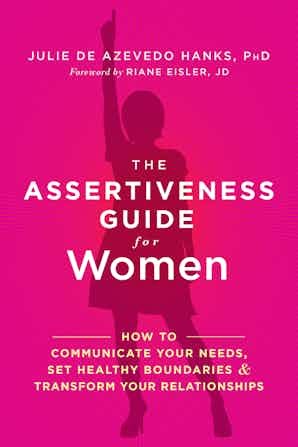By Julie de Azevedo Hanks, PhD
Assertiveness is a topic that I care deeply about. As a clinical therapist of over twenty years, I love to help women find and use their voice to clearly express themselves in a way that strengthens their connections with others and gets their own needs met. While assertiveness may seem more relevant to adult relationships, it also has great application in how we raise and interact with our children. Here are three ways to practice assertiveness in parenting:
1. Self-soothe before you make a move
One of the misconceptions that people have about assertiveness is that it simply means speaking one’s mind (especially about difficult or heated topics). In reality, though, in order for us to speak our truth in a way that brings us closer to others, we have to manage our own feelings and harness them before we express something important. If you’re flooded with anger, frustration, fear, exhaustion, it’s all too easy to blow your emotional gasket, so stop and self-soothe first! You can do this by practicing mindfulness, separating your feelings from your thoughts, and engaging in deep breathing and meditation so you can express yourself from a centered and calm place.
2. Validate their feelings
A hallmark characteristic of assertiveness is honoring and valuing another person’s experience as valid (in addition to communicating your own views). In other words, we don’t have to disempower someone else to be empowered ourselves. I encourage clients and readers to “hold up their lantern” and see that most relational conflicts can be seen in many different lights. One of the ways we can maintain our relationships is to honor the other person’s viewpoint, even if we do not fully agree. In parenting, one of the most powerful tools is validating your child’s emotions. A simple “I can tell you’re really mad that I said you can’t go over to your friend’s house” can help a child calm down and actually hear and honor your boundaries and guidance.
3. Stay firm on boundaries
When thinking about boundaries I use metaphors of a wall, an open yard, and a fence. When we put up brick walls, nothing and no one can reach us, whereas with an open yard, anyone and anything can come into our space. The goal is to have emotional boundaries that act as a fence; we open and close them as necessary to permit some things to come through and others to stay away.
Boundaries that parents set are often set primarily for the child’s own good. Even if they throw a fit (literally!), children need mothers and fathers who aren’t afraid to be assertive and firm on their boundaries. These include the basics like bedtime for younger kids and not allowing drugs or alcohol for older kids. But boundaries in parenting extend beyond behavioral rules. Emotional and relational boundaries are important, too. Boundaries in parenting also involve shielding a child from adult concerts like family financial problems or marital conflict. A parent who is firm on boundaries won’t unnecessarily involve their children in things that kids shouldn’t have to worry about.
 Julie de Azevedo Hanks, PhD, MSW, LCSW is a licensed therapist specializing in self-care and relationships. Learn more about women and assertiveness by checking out her new book.
Julie de Azevedo Hanks, PhD, MSW, LCSW is a licensed therapist specializing in self-care and relationships. Learn more about women and assertiveness by checking out her new book.


 Why Journaling Is Especially Helpful to Adult Children of Emotionally Immature Parents
Why Journaling Is Especially Helpful to Adult Children of Emotionally Immature Parents